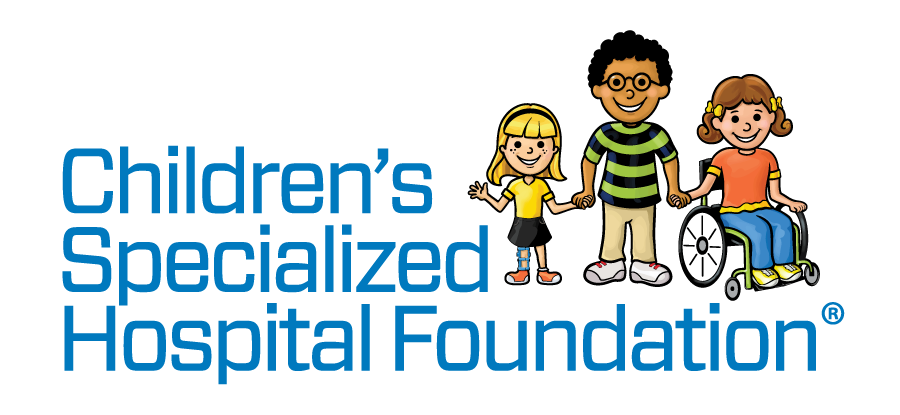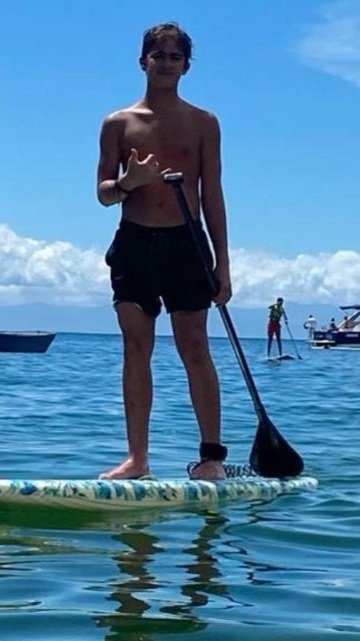Your Life Can Change in the Blink of an Eye
Before a tragic accident changed his life, Isaac Lima was an outgoing 14-year-old who was living the life of an “average” teenager looking forward to high school. He loved school, playing soccer, hanging out with his friends, and listening to his favorite artists like Nicki Minaj, Drake and Sza—but above all, he loved cheerleading with the Central Jersey All Stars team.
One day, when Isaac was doing flips that he had performed many times before, something went terribly wrong. Isaac didn’t land the flip properly but instead landed on his head. While lying on the ground trying to get his bearings, Isaac began to notice that he was unable to get up or move at all. Terrified, Isaac was rushed to the hospital.
Isaac’s condition was serious and he knew that he would undoubtedly have a long journey ahead of him. “When we got to Children’s we had no idea what to expect’, said Isaac’s mother, Daniela. “He was unable to sit up and when he was lifted up his blood pressure would fluctuate because of his very limited mobility. This made him weak and caused him to faint.” The entire family was terrified of what the future would hold for Isaac, who two weeks earlier was just like any other teenage boy.
Once he arrived at CSH the reality of how his injury had dramatically changed his life began to set in for Isaac. Even more than his physical health, Isaac’s mental health was affected tremendously. Seeing nurses and doctors, equipment such as wheelchairs and various mobility devices, as well as other patients who were receiving treatment was overwhelming. Hopelessness, grief and anger took hold of Isaac as he tried to cope with the traumatic and sudden turn of events that changed the trajectory of his life.
He began to shut down emotionally. He was upset and angry and admits that for the first two months of his care at CSH he was mean to his family, hospital staff, and anyone else he came into contact with. Isaac went from being an extroverted and independent kid to being in a wheelchair and needing help with even the most basic tasks such as bathing, using the bathroom and brushing his hair. It was too much for him to bear. “I didn’t want to talk to anyone and I took my anger out on people who did not deserve it,” explained Isaac. “I had accepted my fate and I just wanted to lay where I was forever.”
What Isaac needed desperately was hope. And he found it when he saw another patient who had arrived at CSH in a coma up and walking within a few months. “That was a game changer for me,” said Isaac. “I said to myself, okay, if he can do that, so can you. You have to push and move forward.” From that day forward Isaac began to work hard. He began to push himself in therapy, socialize with staff and other patients, and adopt a more positive outlook on his future.
“My care team at CSH was definitely a team of angels in disguise,” said Isaac. “They never gave up on me, even when I would lash out. They were the ones who stuck it out with me.” Isaacs’s doctors, nurses, and therapists pushed him and constantly reminded him that he is more than just a kid in a wheelchair. They took the time to show him examples of others who were once in his position and are now thriving and living their lives to their full potential.
Isaac values the friendships that he made at CSH, especially since his stay was during the peak of the pandemic and visitors were limited. . “Being in the hospital during the COVID19 pandemic was hard because the safety precautions meant that I could have very few visitors--especially since all of my friends were under 18,” said Isaac. “Talking to the nurses and other patients really helped me get through the isolation of not having my friends there.”
Isaac’s family took turns staying with him during his four month inpatient stay at CSH. “The staff hugged us and became like family,” said Daniela. “Children’s Specialized Hospital felt like home, which meant everything to us in that moment.” Day after day Daniela watched Isaac’s care team motivate him to keep working and began to see improvement in her son, both physically and emotionally. “All the nurses were so gentle, I never had one complaint,” continued Daniela. “When we left it was a very sad day.“We felt the same scared feeling that we had coming in, but now about going home. Children’s was our safe place.”
Upon leaving CSH, Isaac was fitted for a state-of-the-art wheelchair by the Rehabilitation Technology department. “Rehab Tech,” as it is more commonly known in the halls of CSH, uses a team approach to conduct a detailed evaluation of each patient with regards to seating, positioning and mobility needs. The specialists then help patients who are currently using or in need of specialized equipment enhance their strengths and abilities. The new standing power wheelchair that Isaac received has helped him gain some of his independence back. He is now able to participate more fully in family, school, community and recreation activities.
Going back to the life he had before his injury has not been easy for Isaac. Seeing his friends enjoying the things that they all used to do together is hard for him. “After being in treatment for so long I didn’t know my friends anymore,” said Isaac. “Adapting and learning who we all are now has been a challenge. This journey has definitely shown me who my true friends are.”
Isaac is excited for what his future holds. Since leaving CSH he has made so much progress. His mobility has improved tremendously and today, he is able to sit up and stand in his wheelchair, raise his arms, go to school, and use his cell phone. He finds hope in every achievement and has come so far from the days when he and his family were unsure about what would be possible for him. Children’s Specialized Hospital has given Isaac a sense of freedom. Before leaving, Isaac’s care team taught him how to approach situations differently and do a variety of things on his own so now he is able to go out with his friends without needing much assistance.
Isaac’s goals for the future are to become a business man and to be able to care for himself fully one day. The advice that Isaac has for other kids going through something similar is, “There’s always a mountain that’s higher than the other--just know that it gets better.”



